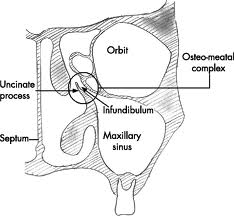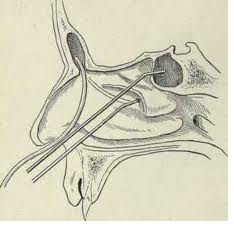
The maxillary sinuses, located in the cheekbones beside the nose, are the largest of the paranasal sinuses and play a vital role in respiratory health. These air-filled cavities can become inflamed or infected, leading to maxillary sinusitis, a common condition causing facial pain, nasal congestion, and discharge. When sinus infections become severe or persistent, a procedure known as Maxillary Antral Sinus Washout may be required.
Maxillary antral sinus washout is a minimally invasive surgical technique designed to flush out pus, mucus, and debris from the maxillary sinus, promoting drainage and relieving symptoms. This procedure is often employed in cases of acute or chronic maxillary sinus infections unresponsive to medication, to prevent complications and improve patient comfort.
This guide will explore the causes and risk factors leading to the need for maxillary antral sinus washout, symptoms and signs that indicate this treatment, diagnostic methods, various treatment options, prevention and post-procedure management, potential complications, and how to live with and manage the condition effectively.

Common Causes Leading to Sinus Washout
-
Acute Maxillary Sinusitis: Infection causing blockage and pus accumulation in the sinus cavity.
-
Chronic Maxillary Sinusitis: Long-standing inflammation resulting in mucosal thickening and persistent blockage.
-
Dental Infections: Root infections of upper teeth spreading into the maxillary sinus.
-
Anatomical Blockages: Deviated nasal septum, polyps, or narrow sinus openings impairing drainage.
-
Foreign Bodies: Occasionally, foreign material trapped in the sinus.
-
Failed Medical Treatment: Persistent infection despite antibiotics and decongestants.
Risk Factors
-
History of allergic rhinitis or other nasal allergies.
-
Smoking and exposure to pollutants.
-
Recurrent upper respiratory tract infections.
-
Immunocompromised status.
-
Poor dental hygiene or untreated dental infections.
-
Facial Pain and Pressure: Particularly over the cheeks, worsened by bending forward.
-
Nasal Congestion and Discharge: Thick, often yellow or green mucus from the nose.
-
Fever and Malaise: Indicative of infection.
-
Headache: Frontal or facial headaches related to sinus involvement.
-
Toothache: Upper jaw discomfort related to sinus pressure.
-
Reduced Sense of Smell: Due to nasal inflammation.
-
Swelling and Tenderness: Over the affected sinus area.
-
Symptoms Persisting or Recurrent Despite Treatment: Indicating need for surgical intervention.
Clinical Evaluation
-
Detailed history of symptoms duration, severity, and prior treatments.
-
Physical examination including palpation of facial sinuses for tenderness.
-
Anterior rhinoscopy and nasal endoscopy to visualize nasal mucosa and drainage pathways.
Imaging Studies
-
CT Scan of the Sinuses: Gold standard imaging to assess sinus anatomy, mucosal thickening, fluid levels, and obstruction.
-
X-rays: Sometimes used but less sensitive than CT.
Laboratory Tests
-
Nasal and sinus swabs for microbiological analysis in refractory infections.
-
Blood tests for systemic infection markers if needed.
Medical Management
-
Antibiotics targeting likely pathogens.
-
Nasal corticosteroids to reduce inflammation.
-
Nasal saline irrigation to aid mucus clearance.
-
Decongestants for temporary symptom relief.
-
Analgesics and antipyretics for pain and fever.
Maxillary Antral Sinus Washout Procedure
-
Typically performed under local anesthesia in outpatient settings.
-
A small puncture (antral puncture) is made in the canine fossa (front wall of the maxillary sinus).
-
Saline solution is flushed through the sinus to remove pus and debris.
-
Sometimes, antibiotics or antiseptic solutions are introduced.
-
Procedure can be repeated if necessary.
Surgical Alternatives
-
Functional Endoscopic Sinus Surgery (FESS): For recurrent or complicated cases.
-
Caldwell-Luc Operation: An older surgical technique used rarely today.
Preventive Measures
-
Prompt treatment of upper respiratory infections.
-
Good nasal hygiene including saline irrigations.
-
Allergy control through medications and avoidance.
-
Smoking cessation.
-
Maintaining good oral hygiene to prevent dental infections.
Post-Procedure Care
-
Avoid blowing the nose forcefully for several days.
-
Use prescribed nasal sprays or antibiotics as directed.
-
Follow-up appointments to monitor healing.
-
Report any worsening symptoms immediately.
-
Bleeding: Usually mild but can occasionally require medical attention.
-
Infection: Risk of introducing or exacerbating infection, though rare.
-
Pain and Swelling: Temporary and manageable with analgesics.
-
Sinus Mucosal Damage: Possible with repeated procedures.
-
Failure to Resolve Infection: Necessitating further surgical intervention.
-
Rare Complications: Orbital cellulitis or spread of infection.
-
Most patients experience significant relief of symptoms after washout.
-
Continued nasal care and allergy management are crucial for preventing recurrence.
-
Awareness of early signs of sinus infection aids prompt treatment.
-
Maintain regular ENT follow-ups especially in chronic or recurrent cases.
-
Lifestyle changes such as avoiding allergens and irritants support sinus health.
1. What is maxillary antral sinus washout?
Maxillary antral sinus washout is a medical procedure designed to irrigate and flush out the maxillary sinus — one of the four paired air-filled spaces in the face — to remove accumulated mucus, pus, debris, or infectious material. This helps alleviate pressure, pain, and congestion associated with sinus infections and promotes healing by restoring normal sinus drainage.
2. Why is maxillary antral sinus washout necessary?
This procedure is usually recommended for patients suffering from acute or chronic maxillary sinusitis when symptoms do not improve adequately with oral antibiotics or nasal sprays. It’s particularly helpful when the sinus is blocked by thick mucus, pus, or polyps, causing persistent infection, facial pain, swelling, or headaches. Washout provides direct relief by physically cleaning the sinus cavity.
3. How is the procedure performed?
Maxillary sinus washout can be performed under local anesthesia in a clinic or hospital setting. The doctor accesses the sinus either through the nasal passage using a small catheter or via a minor puncture in the cheek (canthotomy). Saline or medicated solution is gently flushed into the sinus cavity, flushing out the infectious material. The fluid and debris are then suctioned out. The entire procedure typically lasts 15 to 30 minutes.
4. Is maxillary sinus washout painful or uncomfortable?
While the procedure is performed under local anesthesia to minimize discomfort, patients may feel mild pressure or fullness during the flushing process. After the procedure, mild soreness or nasal congestion is common but generally subsides within a few days. Most patients tolerate the procedure well.
5. What are the indications for maxillary antral sinus washout?
It’s primarily indicated for:
-
Acute or chronic maxillary sinusitis not responding to medication.
-
Blockage causing accumulation of pus or thick mucus.
-
Facial pain or swelling from sinus infection.
-
Preparation before sinus surgery or other interventions.
-
Diagnostic purposes, such as obtaining sinus fluid for culture.
6. Are there risks or complications associated with sinus washout?
Although generally safe, possible risks include:
-
Minor bleeding or bruising.
-
Infection or introduction of new bacteria.
-
Discomfort or swelling at the entry site.
-
Rare injury to nearby structures such as the eye or teeth.
These complications are uncommon when performed by experienced ENT specialists.
7. How should I prepare for the procedure?
Preparation usually involves:
-
A thorough medical evaluation and sinus imaging (CT scan) to assess the sinus anatomy.
-
Informing your doctor about any medications, allergies, or medical conditions.
-
You may be advised to avoid food or drink a few hours before the procedure if sedation is planned.
-
Arranging for transportation home after the procedure if sedation is used.
8. What should I expect during recovery?
Recovery is generally quick. You may experience:
-
Nasal congestion and mild discomfort.
-
Clear or slightly bloody nasal discharge.
-
A sensation of fullness or pressure in the face.
You’ll be advised to avoid strenuous activity for a day or two and may be prescribed nasal sprays or antibiotics. Regular follow-up visits ensure proper healing and symptom resolution.
9. How effective is maxillary sinus washout in treating sinus infections?
Sinus washout is highly effective in clearing the maxillary sinus of infectious material, providing rapid symptom relief. It is often combined with antibiotics and other therapies to ensure complete resolution of infection. For many patients, it reduces the need for more invasive sinus surgeries.
10. Can maxillary sinus washout be repeated?
Yes, if symptoms persist or sinus infections recur, the procedure can be safely repeated. In cases of chronic sinus disease, multiple washouts or further interventions like Functional Endoscopic Sinus Surgery (FESS) may be necessary for long-term management.
SurgeryPlanet is an Healthcare Facilitator and not a Medical service provider. The information provided in this website is not to be used for diagnosis or treatment of any medical condition or use for any medical purposes. We provide information solely for medical travel facilitation and do not endorse any particular health care provider, hospital, facility, destination or any healthcare service or treatment listed. We are not an agent for, or affiliated to any health care provider, or service listed in our website and is not responsible for health care services provided by them. Choice of hospital or doctor for your healthcare services is your independent decision. Consult your domestic licensed health care provider before seeking the services of any health care provider you learn about from our website.

